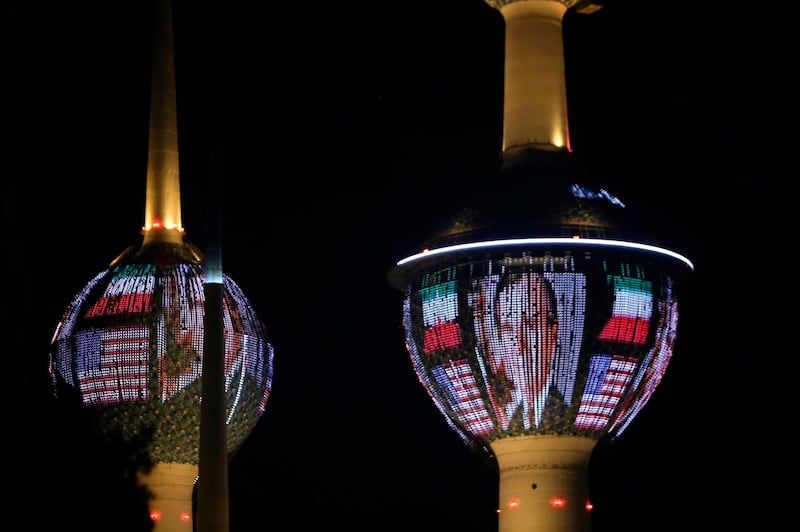The landmark Kuwait Towers in Kuwait City went dark in a moment of silence this week and when its lights went back on, the two iconic globes were illuminated by with images of the late President George H W Bush.
Bush senior looms large in the Gulf country’s consciousness. The late president is remembered as a man whose leadership during the Gulf War saved tiny Kuwait from Saddam Hussein’s tyranny, and reinstated its sovereignty following the Iraqi dictator's invasion.
Bush’s stance towards Kuwait and the wider Gulf region was a hallmark of his policies. Following Iraq's invasion he famously said: “aggression will not stand.”
The late US president’s role in the Gulf War ushered in the era of what many have argued as US hegemony in the region, but also became the starting point of a strained relationship with the Iraqi people.
For Kuwaitis, he was a saviour, with many referring to him as "Baba Bush" and chanting his name during Liberation parades around Kuwait City following Saddam’s defeat.
“There is nowhere President Bush Sr's legacy is more cherished than Kuwait. Bush's decision to launch the first Gulf War saved Kuwait from being usurped into Iraq — and meanwhile transformed the history of the Gulf,” said Elizabeth Dickinson, senior analyst for the Arabian Peninsula at the International Crisis Group.
US involvement in the war allowed for the military powerhouse to establish a permanent presence in Kuwait, at the country’s request, setting a precedent for other Gulf countries.
“The presence of American troops in the Gulf, meanwhile, sparked a decade of debate about the role of the US in the region, and particularly Saudi Arabia. By and large, he is remembered across the region as a man who was true to his word and stood resoundingly behind his allies,” said Ms Dickinson.
Bush’s involvement in the Gulf war established a US foreign policy modus operandi for countries in the region, which was restated in an interview he gave marking the war’s 20th anniversary.
“The United States was willing to use force way across the world, even in that part of the world where those countries over there thought we never would intervene,” he said.
The foreign policy served two interests, one to secure maritime trade through the pivotal Strait of Hormuz, but less obvious was that US involvement allowed Washington to flex its newfound willingness to intervene in foreign conflict under the guise of supporting freedom.
His hands-on interventionist approach to Arab politics was tolerated by Washington’s Gulf allies, who believed America’s “fighting for democracy” ethos would not be applied to their monarchies.
When his son invaded Iraq a decade later, it was under the banner of the same ideals his father championed.
However north of the Kuwaiti border, Bush senior is remembered with resentment by numerous Iraqis. When he called for Iraqis to rebel against Saddam Hussein, many did but they were not met with the support he promised.
His push to impose sanctions on Iraq also caused famine in the country and crippled the economy for decades.
Nonetheless, his policies in the Gulf War and the aftermath, which is by and large his crowning achievement during his one term in office, will be remembered by many as a moment of American heroism.





